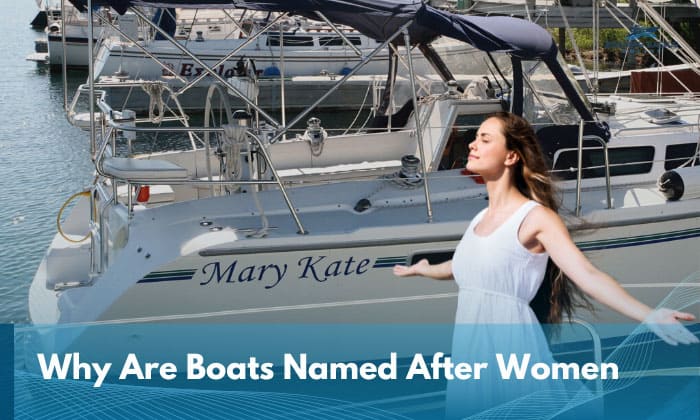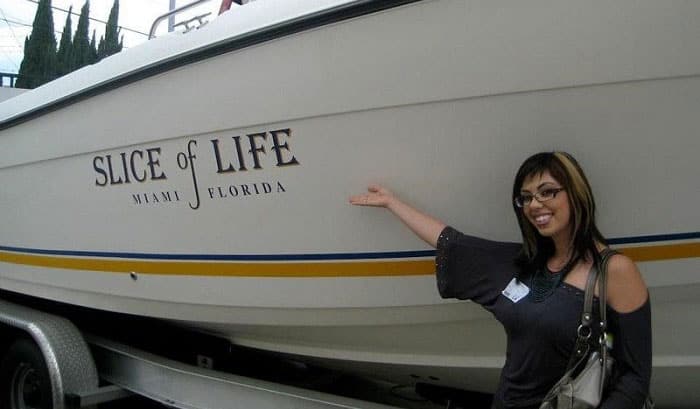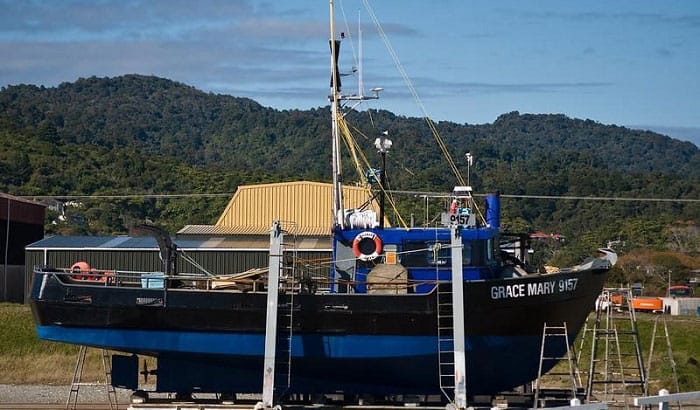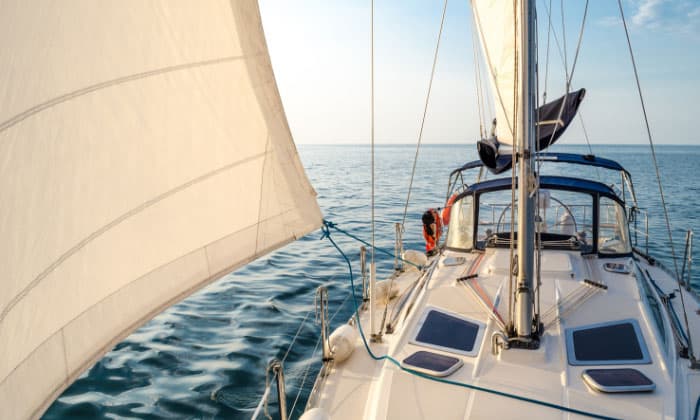Why are boats named after women? Doesn’t that seem like we’re objectifying them?
I’ve outlined all the reasons in this post. Whether you’ll find them offensive or the exact opposite is entirely up to you. But here’s the gist.
It mostly stems from superstition and culture that has turned into a tradition. We named boats after a female mythical figure in the past because we believed they’ll bring fortune and protection.
Over time, it became a way of honoring our vessels by naming them after the women we deeply care about and respect—nothing intentionally offensive, but already controversial nowadays.
Table of Contents
Every Reason and Meaning for Naming Boats After Women
1. Superstition
Historians frequently point to superstitious beliefs when it comes to this topic. Naming a boat after a woman, particularly one who is famous or even worshiped in the past, was done so she (or more specifically her qualities) will embody the vessel’s spirit – and, in turn, provide blessings.
If you look at ships of the distant past, they often have female figureheads placed at the bow. It’s safe to say that it became a widespread practice during that time because of the said tradition. That also answers the question, “Why are boats called she?”
However, that’s not the sole reason why we find statues of women in the front part of ships and why there are many boats referred to as she. After all, the practice was also partly inspired by the belief that women were naturally more skilled navigators than men and that the mere presence of the female form is enough to tame the sea’s wild nature.
2. Reverence for Women
Over time, as that era of wonder and mysticism declined, the tradition still lingered but the root reason changed. In the end, the affection remained. Male boat owners put their vessels close to their hearts, similar to a wife or girlfriend, so they named the vessels after them.
It’s not limited to a significant other as well, since the name can also reference a great female friend they had or their sister or grandmother.
Boaters named their vessels after women who have made the most impact in their lives, in short.
3. Boats and Ships as Motherly Figures
Another major reason why there are still plenty of ships called she is that we just can’t help but associate them with our mothers. It’s really no different from why we call the planet we live on “Mother Earth”.
When we’re out at sea and subjected to its unpredictable and harsh conditions, “she” serves as our main protector. “She” houses the provisions necessary to sustain us and takes us where we need to go.
Moreover, the simple design and form of ships can be readily likened to a woman’s womb that serves to “cradle” her children (i.e. the sailors).
4. “She’s” Quite High-Maintenance
Of course, another provocative reason why a ship is called a she (which could ruffle a couple of feminists’ feathers out there) is that it’s because she’s “high-maintenance”.
“She” needs meticulous care and dedication from the crew to keep her “happy” and in tip-top performance, plus the fact that men tend to flock to her.
Still, it’s not like they need that level of care just to be all “prettied up”. We can see this in military ships named after females who have made their mark in history – and were ready to dish out a beating, as proven by famous female ship names like the USS Pocahontas, USS Roosevelt, and USS Florence Nightingale.
5. The Language Connection
A more “neutral” reason as to why we use female names for boats is the fact that Old English was actually gendered. The Latin roots of the language also assigned a feminine touch to ships, being referred to as “navis”.
Latin and romance languages like French also greatly influenced English language naval terms. English sailors adopted the French sailor’s propensity to refer to his ship as the French equivalent of ‘she’.
What Is the Significance of Naming Boats?
The reasons are both practical and personal. Naming your vessel will always be an important step to ensure its easy identification. On the other hand, we tend to choose boat names – lady boat names or otherwise – due to how much that specific name means to us or what it signifies.
A lot of people nowadays definitely think it’s sexist to call a ship she, but it’s not really that big of a deal to be worthy of further debate and discussion.
Even now, catamaran owners hold on to that tradition without any malice, but rather the same kind of reverence felt by sailors of old. Plenty of modern-day sailors still subscribe to the said superstitious beliefs, so much so that they believe it’s bad luck to stray away from that tradition.
However, it’s worth noting that in these present times, we normally don’t use the pronoun ‘she’ when referring to our vessels anymore. But the female names remain.
Common Misconceptions of Ship Names
1. All of them have women’s names.
Are all boats female? Nope.
Just look at a couple of historical ship names: the USS Constitution, HMS Victory, USS Arizona, and USS Missouri. It’s plain as day that they’re named after abstract concepts and places.
Are there any male ships? Of course! There’s the Bismarck that sank in WWII and the frigate HMS Achilles (which was interestingly made into a “female” once it was renamed the Hibernia in 1902).
2. We name them after women because we want to be close to a female figure
That’s not so much the reason as naming them after people we won’t hesitate to pour our tender loving care into.
It’s really either that, or we just can’t help but be hooked to centuries-old traditions and superstitious beliefs. Of course, I’m saying this as a male boat owner and sharing what other male skippers (and most people regardless of gender, really) feel about the subject.
How Should You Choose Your Boat’s Name?
Boat naming etiquette and rules stress the importance of not choosing a sexist name or communicating any kind of profanity through it. That’s not to say that you shouldn’t name your boat after a special woman – it’s encouraged, actually.
Most would even say that a boat shouldn’t go on its maiden voyage if it hasn’t got a name yet. That’s bad luck, they say (and I still, beyond any reason, tend to agree).
Overall, the rules for naming a boat are simple:
- Keep it short enough so that the transom will be able to accommodate it. Two or three words will suffice.
- It should always be visible, especially even during limited-visibility conditions. So, large and bold fonts are recommended.
- It should be easy to remember and something that you won’t find hard to say (for any reason whatsoever).
Conclusion
What do you think of the fascinating history behind the seemingly simple question, “Why are boats named after women?” Do you also find it quite sexist or do you think it’s completely harmless?
Whatever your thoughts are, we can’t deny that it’s a tradition that has deeply embedded itself in the nautical industry. Perhaps, that age of wonder I mentioned above really hasn’t ended, but rather only evolved to make room for our modern sensibilities. The reverence clearly remains.
Read more:

“My intention from the first day establishing Boating Basics Online is to provide as much help as possible for boaters who want to experience a first safe and convenient trip. So feel free to join us and share your beautiful journeys to the sea!”





